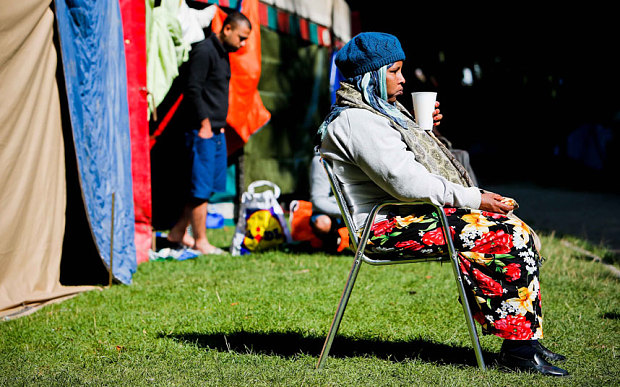Europe’s migrant crisis can be averted by investment in Africa, says Somali foreign minister

Somalia’s minister of foreign affairs has urged his fellow citizens not to join the exodus of African migrants to Europe, saying the country is now on the mend and need them to help rebuild it.
In an intervention in the debate now dividing Europe’s politicians, Abdusalam Omer said that hard-won improvements in the war-scarred nation’s security meant a time could come when Somalis were no longer prominent clients for the people-smuggling gangs of the Mediterranean.
Over the past three years, the country’s transitional government has made major gains against the Islamist al-Shabaab movement, who once ruled most of the capital, Mogadishu, and much of the south of the country.
In an interview with The Sunday Telegraph ahead of a visit to London to speak at the Chatham House international thinktank, Mr Omer said that Mogadishu was becoming safer by the day and was now “open for business” to foreign investment.
“A few years ago, the government controlled only a fraction of the city, but that is no longer the case,” he said. “Now I can take a car and go shopping or visit the Mogadishu beachfront. I wouldn’t want to say things were perfect, but they are certainly going in the right direction.
“Fewer migrants are leaving now than they were, but with every pound of direct investment we get, that is more money that can go towards creating schools, hospitals, and jobs for the future generation of Somalis.”
Mr Omer took over the foreign affairs portfolio earlier this year, having previously served as governor of Somalia’s central bank. Prior to that he was based in Washington, where he worked in the office of the Mayor of the District of Columbia.
He said that as a Somali expatriate himself, he could understand the desire of his fellow citizens to head abroad in search of a better life. But he said he would recommend them to think carefully before doing so, urging them to consider staying behind and helping the country towards a future free from dependency on foreign aid.
Somalis, he added, were naturally good businesspeople, pointing out that even when Mogadishu had had no functioning government, local entrepreneurs had set up thriving private mobile phone networks, electricity and water supplies, and other utilities.
“We have a strong service culture, where people expect to pay fees for what they get rather than relying on government,” he added.
He also said that Western businessmen should overcome any reticence about visiting the Somali capital, despite ongoing guerrilla attacks by the al-Shabaab network.
“I will be realistic about this – they would probably want to use bodyguards, just as businessman have always done when they have come here in recent years,” he said. “But things are definitely improving – and investors who want to come here to see for themselves are welcome.”
The Telegraph